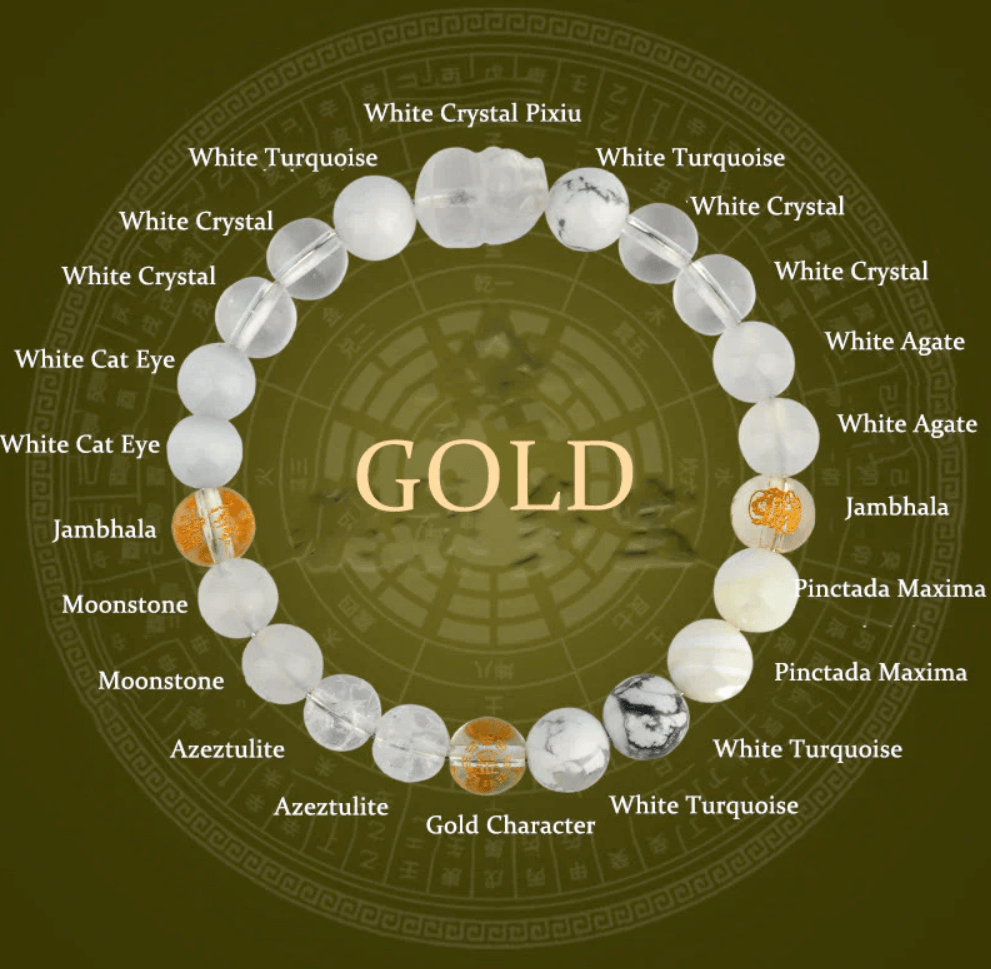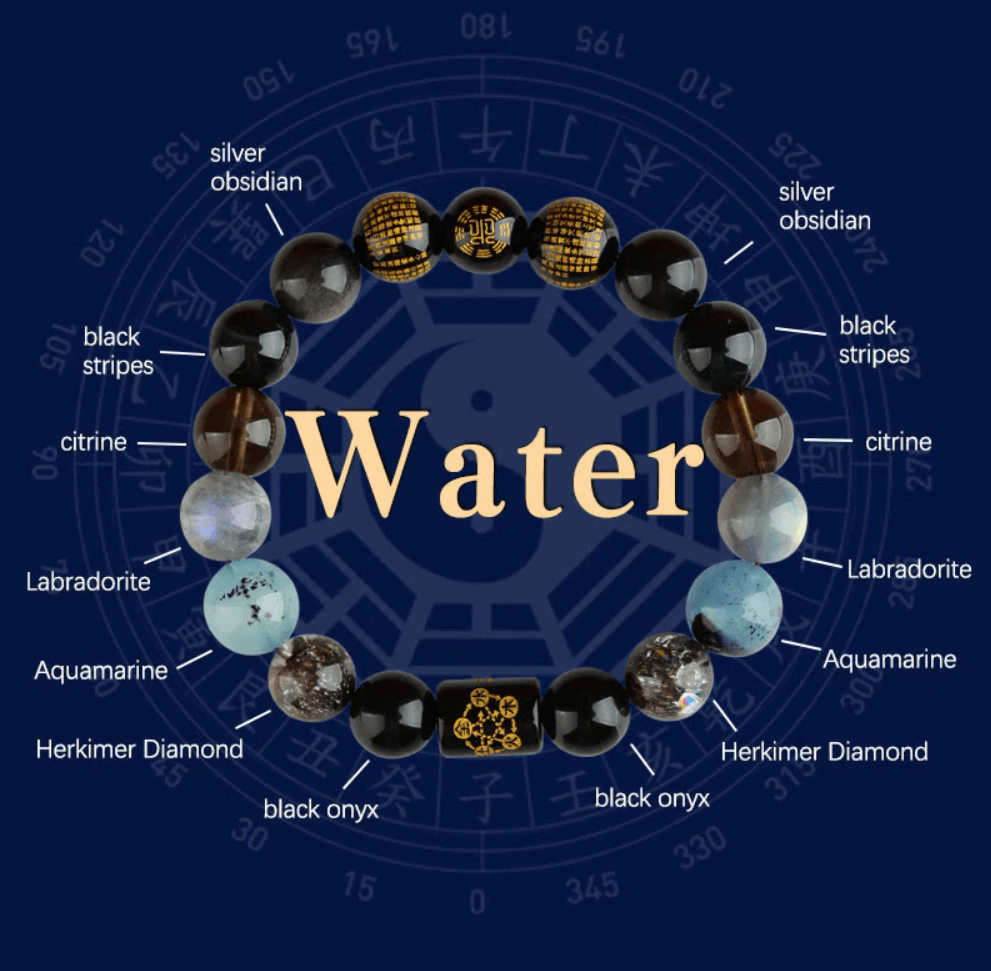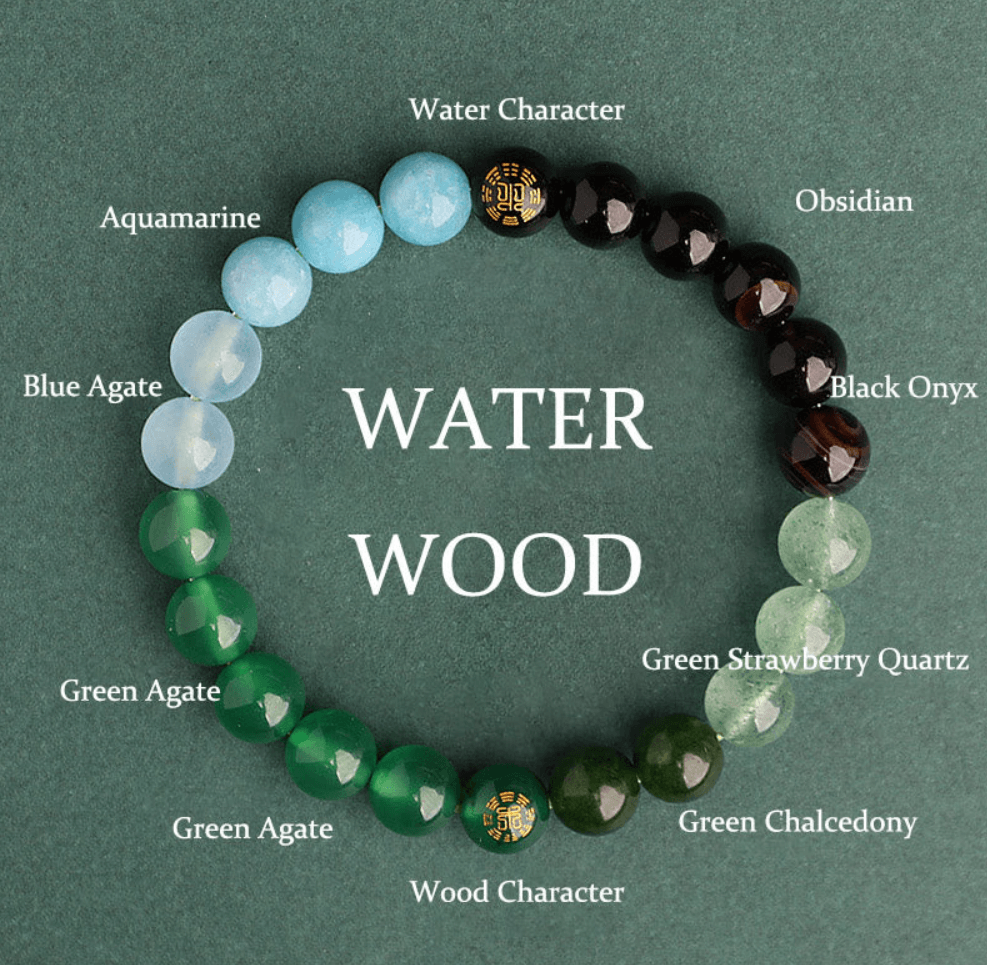The Miraculous Chinese Doctrine of the Five Elements
2025-05-21
Introduction: Opening the Mysterious Door of Chinese Philosophy
Have you ever wondered about the Chinese saying “Jin, Mu, Shui, Huo and Tu”? These five simple words are not the names of ordinary elements, but rather the five elements, an ancient philosophical concept that contains millennia of wisdom. It is like a mysterious key that opens the door to understanding Chinese culture, traditional medicine, and even living customs, helping people to decipher the laws of operation and interrelationships of all things in the world. Next, let's go into the world of the five elements, which is full of oriental wisdom.
1.What are the five elements?
The five elements refer to gold, wood, water, fire and earth. But don't think of them as just specific things like gold, silver, trees, and streams of water; they are more like five “energy attributes.” For example, “gold” represents hardness and rules, like metal tools and the letter of the law; “wood” symbolizes growth and vitality, like the shoots that break out of the ground in spring; “water” represents flow and change, Water” symbolizes flow and change, like a stream flowing forward; ‘Fire’ means passion and power, like a dancing flame that brings warmth; and ‘Earth’ means tolerance and stability, like the earth that carries all things. The ancients believed that all things in the world, from mountains and rivers to the sun and the moon, and from the smallest to a person's personality and body, could be explained by these five attributes.

2.The interplay of the five elements
Have you ever wondered about the Chinese saying “Jin, Mu, Shui, Huo and Tu”? These five simple words are not the names of ordinary elements, but rather the five elements, an ancient philosophical concept that contains millennia of wisdom. It is like a mysterious key that opens the door to understanding Chinese culture, traditional medicine, and even living customs, helping people to decipher the laws of operation and interrelationships of all things in the world. Next, let's go into the world of the five elements, which is full of oriental wisdom.
1.What are the five elements?
The five elements refer to gold, wood, water, fire and earth. But don't think of them as just specific things like gold, silver, trees, and streams of water; they are more like five “energy attributes.” For example, “gold” represents hardness and rules, like metal tools and the letter of the law; “wood” symbolizes growth and vitality, like the shoots that break out of the ground in spring; “water” represents flow and change, Water” symbolizes flow and change, like a stream flowing forward; ‘Fire’ means passion and power, like a dancing flame that brings warmth; and ‘Earth’ means tolerance and stability, like the earth that carries all things. The ancients believed that all things in the world, from mountains and rivers to the sun and the moon, and from the smallest to a person's personality and body, could be explained by these five attributes.

2.The interplay of the five elements
There are two special relationships between the five elements: mutual birth and mutual restraint. Phyllogenesis means helping and promoting each other, in the order that wood begets fire, fire begets earth, earth begets gold, gold begets water, and water begets wood. Isn't it interesting to imagine that wood (MU) can be ignited to become a flame (FIRE), fire burns leaving ashes (EARTH), earth can be dug up to produce metal ores (GOLD), metal melts and flows like water (WATER), and water in turn waters the trees to grow (WOOD)?
The phases are then restraining and balancing each other, in the order of wood over earth, earth over water, water over fire, fire over gold, and gold over wood. For example, the roots of a tree (wood) can penetrate the soil (earth), a dam (earth) can stop a flood (water), water can douse a fire (fire), fire can melt metal (gold), and an axe made of metal can cut down a tree (wood). These two relationships keep the world in balance, like the forces on either side of a seesaw that can't favor either side too much.
3.How do you know what your five elements are deficient in?
3.How do you know what your five elements are deficient in?
In China, people commonly use three methods to look at the five elements. The first is the “Eight Character Platoon”, which requires knowing the year, month, day and hour of one's birth, converting it to the ancient Chinese stem and branch calendar, and then analyzing the five elements corresponding to each character, just like doing a “five element physical examination” of one's life. However, this method is a bit complicated and requires specialized knowledge.
The second is the “Seasonal Judgment Method”, which is simple and easy to remember. If you are born in spring, your wood is strong and may lack gold; if you are born in summer, your fire is strong and may lack water; if you are born in fall, your gold is sufficient and may lack wood; if you are born in winter, your water is heavy and may lack fire.
The third is to observe the body and character. For example, easy to cold and cough, do things hesitantly, may lack of gold; bad stomach, short-tempered, may lack of earth. But these are just for reference, can not be completely sure.

4.Effects of the five missing elements
If there is a lack of a certain element in the five elements, there may be some manifestations in life. Those who lack gold may not be decisive enough, as if they are always “torn” when making decisions; those who lack wood may lack vigor, like wilting plants; those who lack water are not flexible enough to do things, like stiff machines; those who lack fire lack enthusiasm and can't get excited about anything; and those who lack earth are prone to unstable moods, like riding on a roller coaster. Of course, this is not absolute, just an interesting statement.
5.Supplementing the Five Elements with Jewelry
The Chinese believe that wearing specific jewelry can complement the five elements. People who lack gold, you can wear gold, silver jewelry, looks shiny and can “make up for the gold”; lack of wood, suitable for mahogany strings, green jade, full of nature; lack of water, wear blue crystals, pearls, as if the sea on the body; lack of fire, rubies, amethysts can bring enthusiasm; lack of earth, amber, topaz jewelry make people feel calm and reliable. Keep in mind, though, that this is more of a cultural habit, and just like wearing a lucky charm, a positive mindset is what matters!

Conclusion: The Five Elements - Wisdom Flowing Through Chinese Culture
The doctrine of the Five Elements has been passed down through thousands of years and has long been deeply integrated into every aspect of Chinese life. It has not only been a philosophical tool for the ancients to explore the world, but also continues to play an influential role in Chinese medicine, feng shui, and naming, among other fields. From understanding natural phenomena to guiding life practices, the Five Elements are like a cultural link that connects the Chinese people's unique way of thinking and attitude towards life. We hope that through this introduction, you can feel the unique charm of this oriental wisdom and discover more interesting stories and cultural codes related to the Five Elements in your future life.

4.Effects of the five missing elements
If there is a lack of a certain element in the five elements, there may be some manifestations in life. Those who lack gold may not be decisive enough, as if they are always “torn” when making decisions; those who lack wood may lack vigor, like wilting plants; those who lack water are not flexible enough to do things, like stiff machines; those who lack fire lack enthusiasm and can't get excited about anything; and those who lack earth are prone to unstable moods, like riding on a roller coaster. Of course, this is not absolute, just an interesting statement.
5.Supplementing the Five Elements with Jewelry
The Chinese believe that wearing specific jewelry can complement the five elements. People who lack gold, you can wear gold, silver jewelry, looks shiny and can “make up for the gold”; lack of wood, suitable for mahogany strings, green jade, full of nature; lack of water, wear blue crystals, pearls, as if the sea on the body; lack of fire, rubies, amethysts can bring enthusiasm; lack of earth, amber, topaz jewelry make people feel calm and reliable. Keep in mind, though, that this is more of a cultural habit, and just like wearing a lucky charm, a positive mindset is what matters!

Conclusion: The Five Elements - Wisdom Flowing Through Chinese Culture
The doctrine of the Five Elements has been passed down through thousands of years and has long been deeply integrated into every aspect of Chinese life. It has not only been a philosophical tool for the ancients to explore the world, but also continues to play an influential role in Chinese medicine, feng shui, and naming, among other fields. From understanding natural phenomena to guiding life practices, the Five Elements are like a cultural link that connects the Chinese people's unique way of thinking and attitude towards life. We hope that through this introduction, you can feel the unique charm of this oriental wisdom and discover more interesting stories and cultural codes related to the Five Elements in your future life.

